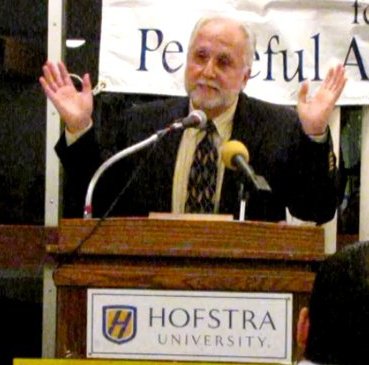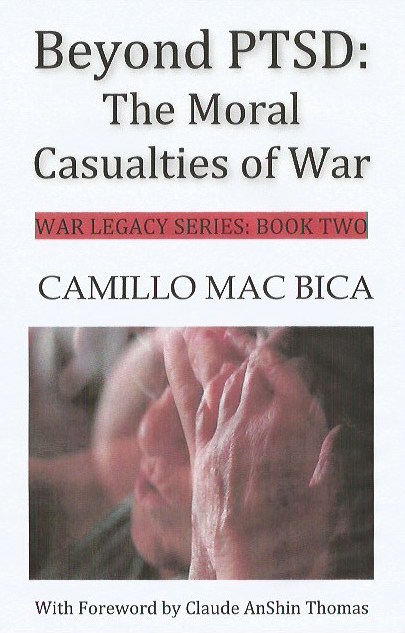I Am Neither Hero nor Murderer
Sometimes, specifically on Memorial Day and Veterans Day, I am thanked for my “service” by an appreciative and supportive public. Again, I don’t remember performing any service for which I should be thanked. The only thing I can figure is that when I wore the uniform of a United States Marine, I participated in an enterprise whose primary purpose, no whose sole purpose, was to kill people and blow shit up. So I guess those who thank me must think that killing those people and blowing that shit up made a profound positive difference in their lives. For why else would they feel appreciative and thank me for doing it.
The Mythology of Troop Blame
Not everyone agrees, however. Others, inevitably those who oppose war, believe otherwise. They argue that a myriad of unnecessary, illegal, and immoral wars, wars such as in Vietnam, Iraq, and Afghanistan, during which atrocities and violations of international and moral laws of war were a common occurrence, were made possible by my willingness to “serve.” Maintaining a “what if they gave a war and nobody came” perspective, they believe no morally conscious individual should enlist and that all members of the military are morally obligated to refuse to fight in such wars. Consequently, I am not a hero, in their view, nor are my efforts and “sacrifices” noble. Rather, I am a murderer, an aggressor, and a baby killer. Ironically, I am condemned for my “service,” for the very same reasons that I was proclaimed a hero and thanked – because at one point in my life I wore the uniform of a United States Marine and participated in an enterprise whose primary, no whose sole purpose, was to kill people and blow shit up. So I guess those who think me a murderer and condemn me for my “service” must think that killing those people and blowing that shit up was an unnecessary, illegal, and immoral thing to do. For why else would they condemn me for doing it?
Conflicting Mythologies
Is there any wonder, then, that I and many other veterans have spent a good part of our lives trying to come to grips with the experience of war? Searching for answers, I was influenced at various points in my “coming home” by these conflicting mythologies portraying who I am and what I did. I have to admit that I more often sought refuge in the Mythology of Troop Worship, as thinking myself heroic and noble was certainly preferable to being a murderer, aggressor, and tool of imperialism.
Unfortunately, for me, the reality of my experiences was too profound and overwhelming to be celebrated, rationalized away, or forgotten. I knew first hand the impact war has on those who fight. That life amid the violence, death, horror, trauma, anxiety, and fatigue of war erodes our moral being, undoes character, and reduces decent men and women to savages capable of incredible cruelty that would never have been possible before being sacrificed to war. Consequently, atrocities in such an environment are not isolated aberrant occurrences prosecuted by a few deviant individuals. Rather, they are commonplace, intrinsic to the nature and the reality of war, the inevitable consequence of enduring prolonged, life-threatening, and morally untenable conditions, what Psychiatrist Robert Jay Lifton describes as “atrocity-producing situations.”
Ultimately, however, I felt remorse, guilt, and shame as a consequence of my participation in war and, could not escape the Mythology of Troop Blame. I realized the extent to which I had been psychologically, emotionally, and morally “injured” by my experiences in war. Though I hoped otherwise, it seemed likely to me that healing may not be possible if healing meant forgetting the war, putting it behind me and going on with my life, as I had been so often advised by many well meaning friends and associates.
Rejecting Mythology
After many years of turmoil, I have realized that both mythologies are damaging and must be rejected. Easier said than done, of course. I realized that I must be courageous and go places that I have hitherto been avoiding. I must look deep into myself, introspect, and face the demons head-on, stripped of all mythologies.
I realized that the Mythology of Troop Worship is most insidious, as it serves neither the interest of this nation, its citizenry, nor, most of all, members of the military and veterans. First, and most importantly for my attempt at neutralizing, transforming the experience, it provided an escape whereby I could avoid facing the reality of the experience, a task that is crucial if some semblance of normalcy in my life is to be achieved. Second, it makes honest and critical conversations about American foreign policy less likely. Third, by according members of the military and veterans hero status, it becomes understandable and reasonable why many veterans and civilians alike would support sending our military to faraway battlefields to “quell” what in many cases are manufactured crises. Fourth, such mythology serves as a propaganda tool and an asset to maintaining public support for endless war, and to entice the next generation of cannon fodder into military “service”. Fifth, cheering, applauding, and expressing faux gratitude and support masks the reality of the scandalous way in which this nation ignores veteran needs – the high rates of unemployment, PTSD, homelessness, addiction, and suicide. The Mythology of Troop Worship benefits no one in this nation other that the militarists and war profiteers.
While recognizing that the Mythology of Troop Worship must be rejected, that members of the military and veterans are neither heroes nor the saviors of this nation and the free world, we must be cautious not to accept its antithesis, that we are monsters, murderers, and mercenaries benefitting from the slaughter of untold thousands of innocent civilians. That is, we must reject as well the Mythology of Troop Blame – the perspective that members of the military and veterans must bear the brunt of the blame for illegal, endless war. “Blaming the warrior for the war,” portraying members of the military and veterans as crazed drug addicted, war-mongering, racist murderers of innocent people is something with which many of us who participated in the Vietnam war are quite familiar.
Dealing with the guilt, shame, and self-blame – moral injury – inevitable in war is complex requiring both deprogramming and reeducation. Transformation, living with the experience, finding a place for it in our being, requires a holistic multifaceted program employing both traditional and non traditional “therapies” to assist veterans to deprogram – to effect a transition from those warrior behaviors and values instilled in us during boot camp and reinforced on the battlefield to behaviors and values appropriate to a non-martial environment. Further, veterans must explore the relevance and application of moral reasoning to specific aspects of war and the war experience, e.g., collateral damage, conscientious objection, conscription, etc. With a more accurate understanding of moral theory as it applies to war, veterans will realize that our time on the battlefield was a moral aberration. With moral clarity veterans and members of the military will be better able to more accurately gauge and put into perspective our responsibility and culpability for what we did and what we became – moral injury.
Together with others who shared the experience, veterans must, (1) begin the process of examining, rationally and coherently, our perceptions of our behavior on the battlefield; (2) make sense of our thoughts and experiences, i.e., sort things out; (3) reexamine our behavior in light of these insights, i.e., place things in perspective; (4) evaluate and assess, realistically and honestly, our personal responsibility for our actions and omissions during war; and (5) come to grips with our personal “legacy of war,” i.e., find meaning and achieve acceptance of what we have done and build a life around it.
For war’s opponents, those civilians who embrace the Mythology of Troop Blame, I would recommend, before making judgments, that they attempt to understand the motivation of young enlistees and how they are impacted by the experience. Speak with and get to know those young men and women who are now enlisting into the military and then with veterans, especially “peace veterans,” returning from having participated in war. I think it will become apparent that many, if not most, are sincere, well meaning, though at least initially naïve, misinformed, and manipulated (many of them immigrants), and did not grasp the moral gravity of what military service entailed. Understand that the mechanism in place for conditioning our young men and women to accept militarism and war is pervasive, sophisticated, and effective. Understand as well that they have been misled to believe that they are protecting freedom, American values, and serving the common good. While it is easy to condemn those who fight unnecessary, illegal, and immoral wars as murderers, the victimizers of innocent people, what we often fail to understand or choose not to admit is that they are the victims of war as well.
To some this may sound too much like “victim” talk. I know many of war’s opponents are offended by the assertion that warriors can themselves be victims of the wars they prosecute. I would point out, however, that understanding the effects of war on all those it touches does not in any way diminish the moral import of a warrior’s actions or the suffering of those they victimize; the Iraqis, Afghans, Vietnamese, etc. I would hope, therefore, our capacity for compassion, understanding, perhaps even forgiveness, does not end merely because someone dons a uniform.
Civilians may think they understand war and how it impacts the warrior because they’ve read a few books and watched a few films. They don’t. To “know” war, you have to experience it, live it, feel it in your gut – the anxiety, fear, frustration, boredom, hopelessness, despair, anger, rage, etc. In truth, warriors exist in a world totally incomprehensible to those who have never had the misfortune of experiencing the horrors of the battlefield.
Conclusions
While I do not justify or excuse my participation in war and understand the moral enormity of my actions, I will not be scapegoated so as to absolve the collective guilt of an indifferent and apathetic nation. If there is to be condemnation and blame for the crimes of war, let it begin with those whose desire for wealth and power make unnecessary war inevitable, who program and condition young men and women to kill, whose apathy allows the slaughter to continue, and whose blind allegiance, misguided patriotism, or utopian idealism hamper their ability to understand and appreciate the true reality and nature of war and its tragic and profound effects upon the warrior. We must see through the mythologies, the lies and deceptions, and understand that all who become tainted by war are victims. Consequently, we must recognize as well, that while responsible for our actions, the culpability of members of the military and veterans must be mitigated and that all citizens in a democracy must share responsibility and blame for the inevitable atrocities of war. There is blood on all of our hands.
I am neither hero nor murderer and will accept neither praise nor blame for a war I neither caused nor wanted.
Copyright © Camillo Mac Bica • All Rights Reserved
Peace Vet
Writings by Camillo Mac Bica
New Books
Comment Form is loading comments...



